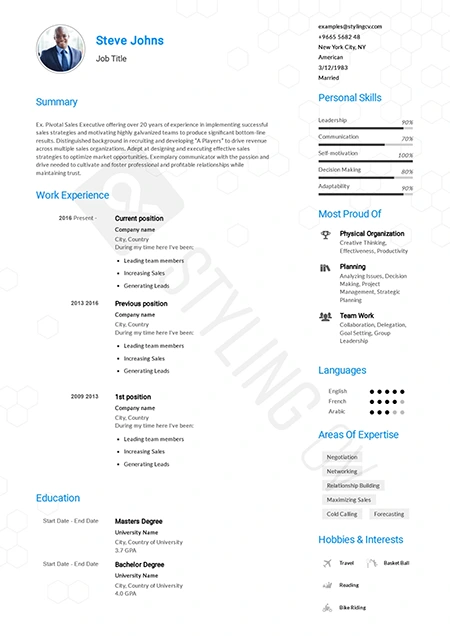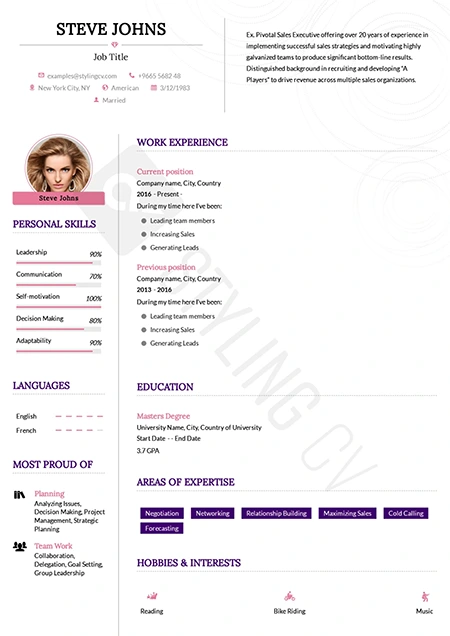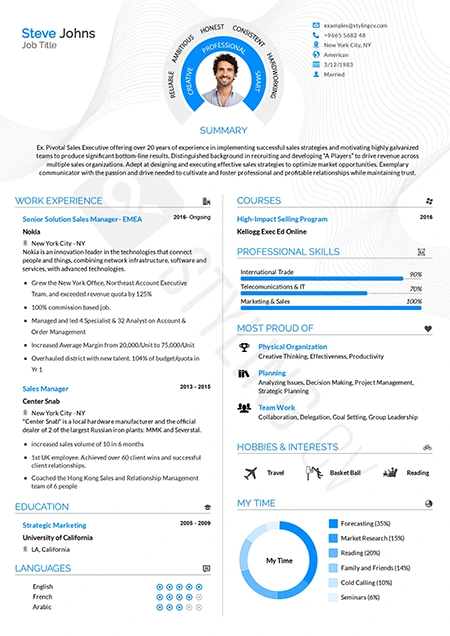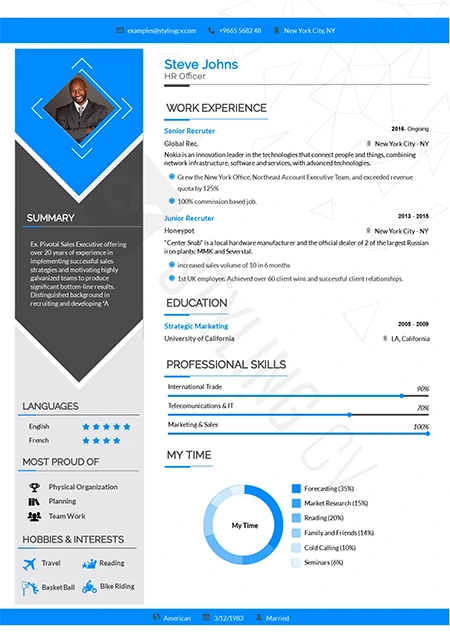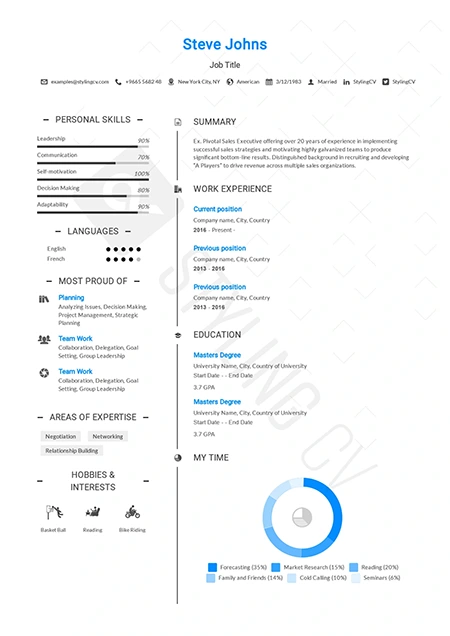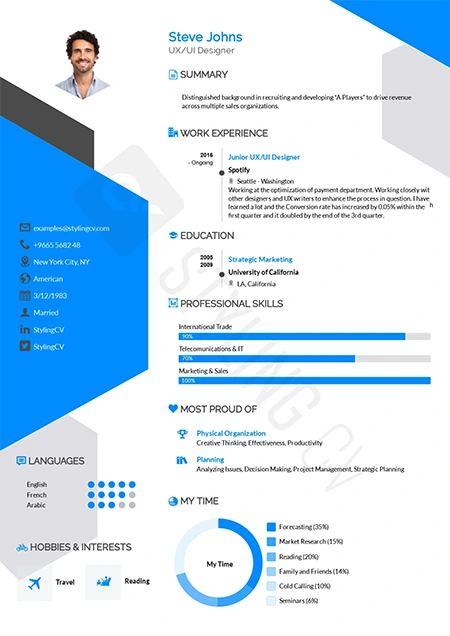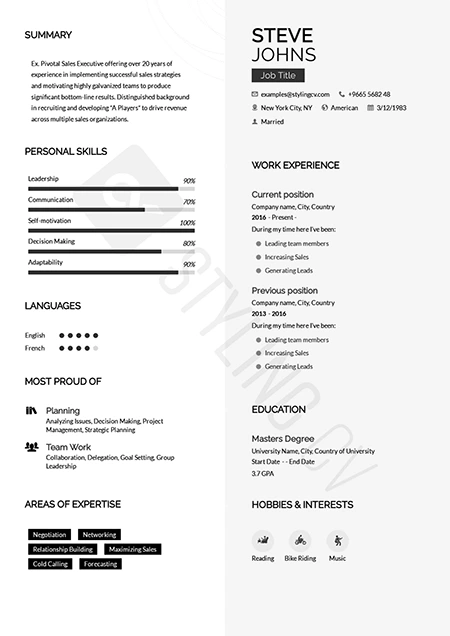Why to use StylingCV Resume Builder ?
A cutting-edge resume builder that works as smart as you do.
Fast, Simple & Effortless
Create your resume in a just a few clicks with the help of our smart step-by-step wizard.
Approved Templates
Let our free resume templates do the work for you and follow pro tips from top experts.
Customizable
Select the right resume template for your industry & job type. Easily tailor it with our flexible text editor.
ATS-Friendly
All of StylingCV’s templates, be it for resumes, CVs, or cover letters, are ATS-compliant.We Are the #1 Resume Builder, Because
Be one of over 6,000,000 happy users worldwideBoost your Chances of Getting Hired Today
Land your dream job with the help of our free resume builder.Get the flawless, attractive, modern resume that your career deserves!
33+ eye-catching templates to choose from
Made by professional graphic designers
Free cover letter, CV, & resume samples
Live feedback & tips to optimize your content
Easy-to-use text editor
